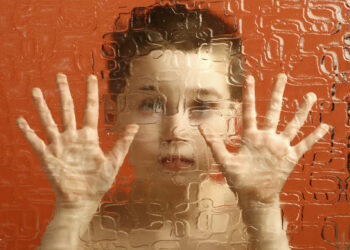The Unity

Why was The Unity formed?
“It takes a village to raise a child” is a concept which I have believed in for a long time, certainly way before becoming a mother myself. Yet, despite our modern world feeling smaller and more connected in some ways due to technological advances, I think the geographical spread of families combined with the ‘busyness’of our day to day lives can leave us feeling more alone than ever. And, sadly, it becomes even harder to find your ‘tribe’and support network when you have a child who is not developing along the typical pathway and in accordance with commonly expected milestones.
My own son was diagnosed with autism shortly before his third birthday, but he had been under the investigation process since he was 15 months of age when he presented with loss of speech following a spate of ear infections and subsequent hearing loss. So, although we spent well over a year leading up to the diagnosis meeting preparing ourselves and learning as much as we could about the condition, what we hadn’t been prepared for were the overwhelmingly cruel words the paediatrician (incorrectly) delivered to us that day: “And of course he will never know how to love you.” On hearing that awful prediction, I actually felt as if my heart was breaking – yet was quickly ushered out of the room with the throwaway advice to spend the next six months ‘absorbing’the label my beautiful boy had just been given. And herein lies the problem … we are told that early intervention is key to securing ‘successful’future outcomes for our child – only to be told to go away and digest the diagnosis which has just been delivered to us, with no clear pathway to turn to in order to find information on therapies and services which could benefit our child.
The difficulty is, conditions like autism are extremely hard to understand as they present as a spectrum of challenges and ‘deficits’- as well strengths and positives! The dimensional nature of the differences in how brains can be wired means we must treat everyone as an individual and adapt our communication, therapy and teaching methods accordingly. Unfortunately, prevalent misinformation and a lack of understanding – even in the healthcare and education sectors sometimes, as demonstrated by our personal experience – combined with an increasing culture of budget cuts, can mean that the advice dispensed and strategies employed seem a little ‘textbook’and irrelevant for our own child. It adds to the already significant burden on families seeking reassurance on how to help their child develop and thrive when they either receive limited information or, worse, information which suggest limits on their child’s future.
Ten years on from my son’s diagnosis, I am shocked to hear from many caregivers that little has changed in terms of both provision for the child and signposting to support and services for the family as a whole. One grandmother described the diagnosis experience as ‘feeling as if a bomb had been set off under the family’: radically changing the direction of the route you thought you were taking in life but with no map or guide to show you the way. The Unity was formed to help bridge that gap– it seems unfair that each family living with difference should individually have to spend valuable hours upskilling, finding what may work through trial and error, and fighting for acceptance on many fronts. Precious time that would be better spent on encouraging speech and interaction with their child, devoting attention to siblings, or even prioritising their personal mental health and wellbeing and catching up on sleep! And of course freeing up time and energy to be in the moment with their child and experience enriching opportunities away from the plethora of medical appointments and EHCP meetings; as I believe that having fun is how all children most effectively learn and grow and is a hugely important factor in enabling them to reach the very best of their individual potential.
What do we hope to offer families?
- Advice and ideas from parents who are further along the neurodivergent family journey and happy to share their experience and knowledge.
- A sense of being understood and of belonging – a community of families who understand exactly what you may be going through – or at least can more readily put themselves in your shoes and empathise and offer support even if they don’t have ready solutions.
- A collective voice to encourage wider society to understand the challenges faced by the neurodiverse and make adaptations for less visible differences, thereby reducing the need for hard pressed parents to keep on fighting the same old battles on an individual basis and, ultimately, achieving greater acceptance and inclusivity in our communities.



